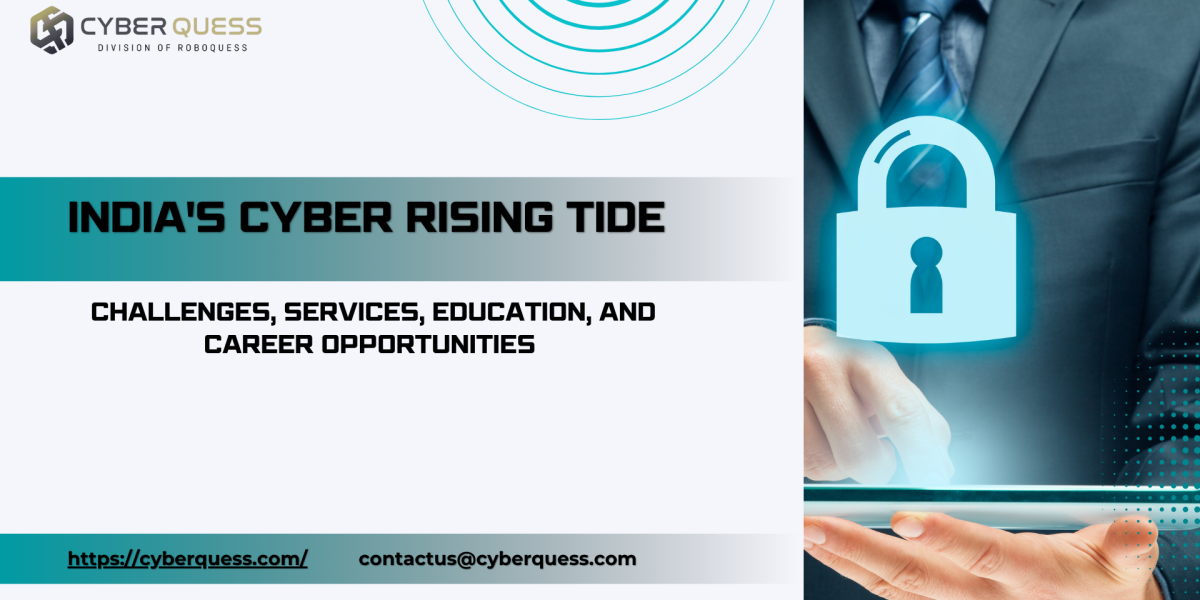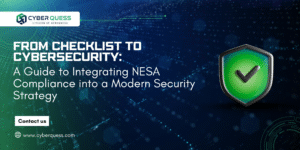India is driving a digital revolution as the globe turns toward a data-driven one. India has become among the fastest growing digital markets as over a billion people linked to the internet and government-supported projects like Digital India accelerate. But this rapid internet development has also unleashed a flood of cyberattacks.
As cybersecurity in India continues to evolve, growing cyber security demand in India is driving organizations to invest in robust cybersecurity services in India, led by top cyber security firms in India, while navigating increasing cybersecurity challenges in India, ensuring strong data protection in India, and exploring the expansive cybersecurity future scope in India.
Data Protection and the Digital Boom in India
India’s data economy is rapidly growing. Massive amounts of confidential data are sent every second, ranging from smart cities and egovernance systems to digital payments. This increase has emphasized how important data security is for governments as well as companies and people. Notwithstanding legal adjustments, India’s cybercrime rate is yet increasing; therefore, India’s cybersecurity issues become a business-critical necessity instead of just a technical problem.
Significant Indian Cybersecurity Problems in India
India’s cyber security issues have complex geography. Important issues range from elementary infrastructure to changing threat tactics are:
Increasing Cyber Threats
India is becoming more and more sought-after by hackers and cybercriminals. The number of attacks including ransomware, phishing, DDoS, and identity theft—which affect not only financial institutions but also healthcare, education, and government agencies—is rising fast.
SMB cyber security
Numerous little to mid-sized businesses, SMBs, run sans official IT security. Insufficient finances and ignorance render them susceptibility even to basic cyberattacks.
APT, or advanced persistent threat
Usually supported by state players or organized criminal groups, these targeted, premeditated attacks go undetected for months through sneak networks.
Lack of Cybersecurity Experts
Although demand is great, India’s cyber workforce lacks the necessary competencies; so, cybersecurity training in India is now under special attention.
Compliance and Regulatory Pressure
Given the demanding laws in effect now, businesses—especially those in the BFSI, healthcare, and IT sectors—have to handle cybersecurity, privacy, and legal obligations concurrently.
India’s Cyber Security Services Bloom
Firms in India are progressively depending on expert cyber security solutions to fight these threats. These cures help to prevent attack, find problems, and guarantee conformity with national as well as worldwide criteria.
Standard Cyber Security Options Include:
Testing of Penetration (VAPT) and Vulnerability Assessment
Testing defenses is necessary for discovering system flaws via real-world attack simulations.
Legal and Regulatory assistance
Expert advice for certifications including ISO 27001, PCIDSS, SOC 2, HIPAA, and DPDP.
Center for Security Operations
Real-time threat detection, monitoring, and reaction are achieved through managed SOC services or centralized SOCs.
Forensic Response and Incident Analysis
Containment, analysis, and repair following cyber attacks or breaches.
Awareness Training
Through lectures and simulations, workers are taught how to prevent internal abuse, identity theft, and phishing.
Providing these services, businesses like CyberQuess lead among the top Indian cyber security firms favored by startups as well as corporates.
The part Cyber Security Companies in India Have to Play
Apart from protecting data, professional cyber security companies in India are strategic allies in digital transformation. Here’s how:
Creating security systems from the start
- Assessing and modifying IT infrastructure to standards compliance
- giving knowledgeable suggestions for digital forensic analysis and breach repair
- Conducting red team operations and penetration testing
- Giving local support and multilingual services (English, Hindi, Arabic)
Companies use their knowledge in a turbulent digital world to minimize risk, increase trust, and guarantee business continuity.
India’s Cyber Security Training: Bringing the Skill Gap
India has given cybersecurity education a national priority as demand for security expertise has increased. To build a future-ready cybersecurity workforce, both public and commercial players are stepping up skills development projects.
Leading Cybersecurity Training Paths:
- Online certifications include CEH, CISSP, OSCP, ISO 27001 Lead Auditor, CompTIA Security+.
- University Programs at IITs, NITs, and private institutions
- Government Programs: Cyber Surakshit Bharat, NASSCOM FutureSkills, Cyber Shiksha
- Custom modules for SOC analysts, red teamers, and DevSecOps duties in enterprise programs
Now very popular, hands-on instruction in SOC dashboards, threat simulation setups, and VAPT laboratories improves technical ability and job readiness.
India has a blossoming cyber security career.
Right now is the ideal moment to start India’s cyber security profession. By 2025, the sector is expected to generate 1.5 to 2 million jobs spanning technical, compliance, and managerial tracks.
Demanded job functions:
Position | Necessary Skills
-
- Security Analyst | Threat detection, SIEM, incident response
- Ethical hacking, scripting, Kali Linux | Penetration Tester
- Compliance Officer | Regulations for GDPR, ISO, SOC 2
- Cloud Security Architect | AWS, Azure, GCP security configuration
- SOC Engineer | Realtime monitoring and alarm analysis
- Manager GRC Governance, Risk, and Compliance solutions
With the appropriate certifications, fresh graduates, IT specialists, legal teams, and HR staff members may all go over into cyber security.
India’s Cyber Security Demand: Growth Forecasts
With the market predicted to surpass USD 13 billion by 2026, the demand for cyber security in India is growing at more than 15% annually. Drivers of growth include:
- Rising phishing and ransomware attacks
- Data protection legislation (DPDP Act, CERTin)
- Weaknesses of cloud and remote work
- Government push towards national structures
Scope of Cyber Security in India
India’s cybersecurity destiny is wide, varied, and quickly changing. Looking ahead:
- Detect realtime inconsistencies via AIPowered Threat Detection.
- Zero Trust Architectures: Strong access controls all around all endpoints.
- Protection for industrial and smart infrastructure: IoT and OT security
- Integration of blockchains: safe audit trails and decentralized identity
- Crossborder Legal Advice on Data Privacy: Cyber Law Specialists
- EHaaS, or Ethical Hacking as a Service: freelance bug bounty marketplaces
Regional cybersecurity hubs, multilingual credentials, and SMB and rural outreach will all expand in India to help to establish a more solid national image.
Conclusion :-
Our defenses must adapt in accordance with the threat scenario. In a digital-first economy, investing in cybersecurity solutions in India, leadership, and training is vital for companies to flourish; therefore, it is no longer a specialized but rather a national need.The moment to act is now whether you’re a business leader looking for protection or a professional venturing into a new frontier. With pride, CyberQuess heads the charge in India and the Middle East with advanced services and training.






